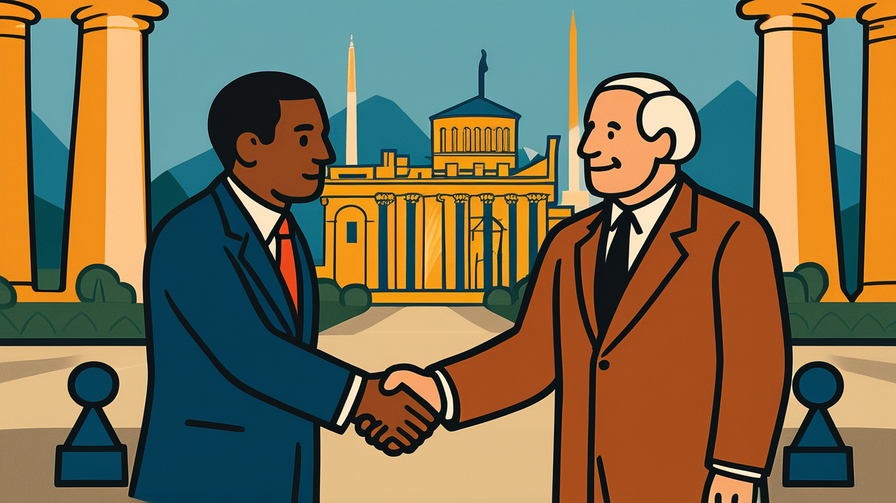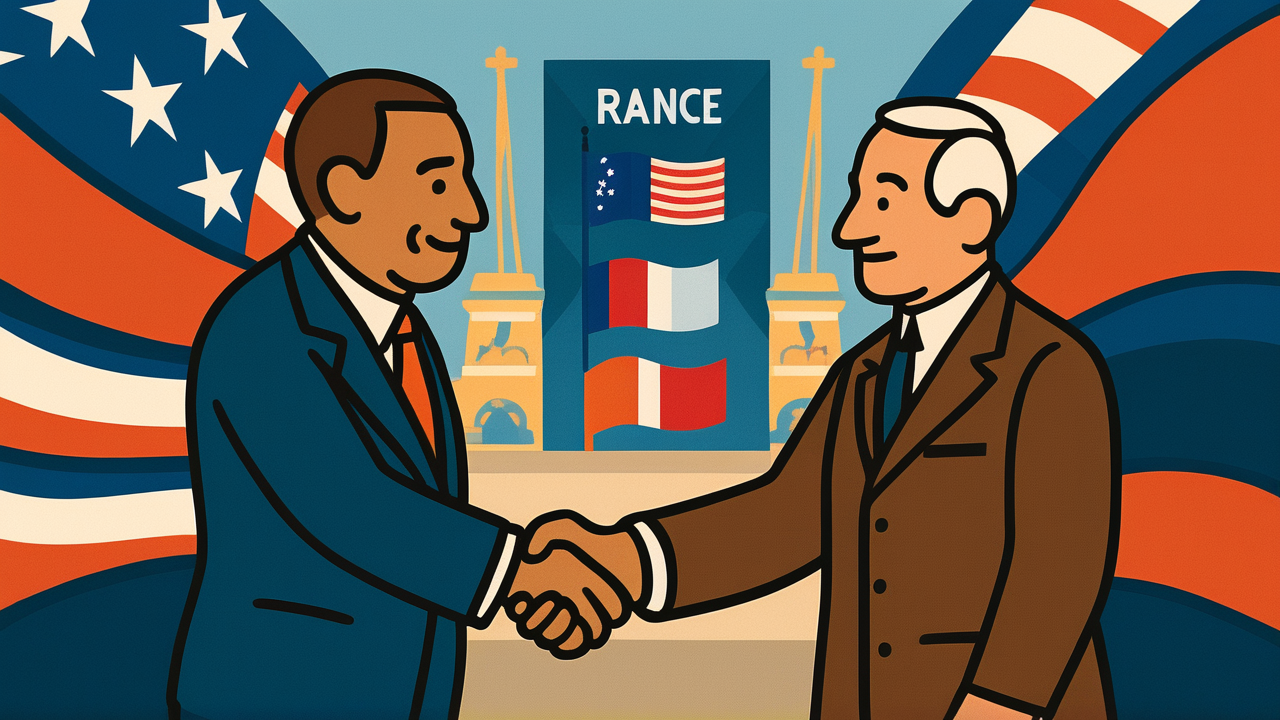[Disclaimer] This article is reconstructed based on information from external sources. Please verify the original source before referring to this content.
News Summary
The following content was published online. A translated summary is presented below. See the source for details.
US Secretary of State Marco Rubio issued a congratulatory statement to France on July 14, 2025, celebrating Bastille Day, France’s National Day. The statement emphasizes the enduring friendship between the United States and France, describing them as trusted friends and partners rooted in defending freedom and democratic order. Rubio welcomes France’s commitment to increase defense spending to 5% of GDP as part of NATO obligations, strengthening collective security against modern threats. The cooperation between the two nations extends beyond military matters to include expanding trade and investment, promoting energy independence, safeguarding critical technologies, and addressing global challenges from Africa’s Sahel region to the Indo-Pacific. The statement also highlights collaboration on combating illegal immigration, defending freedom of expression, and countering unfair trade practices. Rubio notes that France is America’s “oldest Ally,” referencing France’s crucial support during the American Revolution, and expresses commitment to deepening ties based on shared values of liberty, peace, and prosperity.
Source: US State Department
Our Commentary
Background and Context

Ever wonder why there’s a giant statue of a French woman holding a torch in New York Harbor? Or why so many American cities have streets named “Lafayette”? The friendship between the United States and France goes back to America’s birth as a nation, and every July 14th, both countries celebrate this special relationship.
Bastille Day commemorates July 14, 1789, when French revolutionaries stormed the Bastille prison in Paris, sparking the French Revolution. It’s like France’s version of the Fourth of July—a celebration of freedom from tyranny. The fact that the US Secretary of State sends official congratulations shows how much this friendship still matters today.
Expert Analysis
Let’s decode what Secretary Rubio’s diplomatic language really means:
“Oldest Ally”: This refers to 1778, when France became the first country to recognize American independence and send military help. Without French soldiers, ships, and money, America might have lost the Revolutionary War. The French spent the equivalent of $13 billion in today’s money to help America win freedom!
NATO and 5% GDP: NATO (North Atlantic Treaty Organization) is like a defensive team where member countries promise to protect each other. The mention of 5% GDP spending means France is committing to spend 5% of its total economy on defense—that’s huge! It’s like if you had $100 and promised to spend $5 protecting your neighborhood.
Beyond Security Cooperation: The statement lists many areas where the US and France work together:
• Trade: French companies employ over 700,000 Americans
• Energy: Sharing nuclear and renewable energy technology
• Technology: Protecting against cyber attacks and tech theft
• Global challenges: From fighting terrorism in Africa to maintaining peace in Asia
Additional Data and Fact Reinforcement
The US-France friendship in numbers:
• 247 years of diplomatic relations (since 1778)
• $138 billion in annual trade between the countries
• 4.5 million American tourists visit France yearly
• 30+ US cities named after Lafayette (French Revolutionary War hero)
Cultural exchanges you might not know:
• French fries? Actually from Belgium, but popularized in America by Thomas Jefferson after his trip to France
• The Statue of Liberty was a gift from France in 1886
• Both countries influenced each other’s revolutions and democratic ideals
• French is taught in thousands of American schools
Related News
This Bastille Day message comes at an important time. With ongoing conflicts in Ukraine and tensions in the Indo-Pacific, the US and France are coordinating more closely than ever. Both countries are concerned about China’s growing influence, Russia’s aggression, and protecting democratic values worldwide.
Recent collaborations include joint military exercises in the Pacific, coordinating sanctions on Russia, and working together on climate change initiatives. The mention of “illegal immigration” and “unfair trade practices” suggests both countries are aligning their policies on these contentious issues, showing that even old friends must constantly work on their relationship.
Summary

The US Secretary of State’s Bastille Day message to France is more than just a polite greeting—it’s a reaffirmation of one of history’s most important friendships, one that continues to shape global politics today. From helping each other win independence to facing modern challenges together, the US-France alliance proves that international friendships can last centuries.
For students, this relationship offers lessons about how countries can remain allies despite occasional disagreements (remember “Freedom Fries” in 2003?). It shows that shared values—liberty, democracy, human rights—can create bonds stronger than temporary political disputes. Whether you’re interested in history, international relations, or just understanding why your French class matters, the US-France friendship demonstrates how cultural understanding and diplomatic relationships shape our world. Who knows? You might be part of the next generation maintaining this historic friendship!
Public Reaction
Americans generally view France favorably, with many appreciating French culture, food, and fashion. French citizens have mixed views—they value the historic alliance but sometimes disagree with US policies. Students learning French often feel more motivated knowing about this historic connection. Military families appreciate France’s NATO commitment. Some Americans still joke about French military history, though historians note France has one of the most successful military records in history. Tourism between the countries remains strong, showing people-to-people connections matter as much as government relations.
Frequently Asked Questions
Q: Why does America care about Bastille Day?
A: Just as France helped America gain independence, the American Revolution inspired the French Revolution. Our countries’ democratic ideals are intertwined, making each other’s freedom celebrations meaningful to both.
Q: Are the US and France always allies on everything?
A: No, allies can disagree! In 2003, France opposed the Iraq War, causing tensions. But like good friends, they worked through differences and remained allies on bigger issues.
Q: How does this friendship affect students?
A: Exchange programs, language learning opportunities, and cultural understanding between the countries create opportunities for students. Many American universities have partnerships with French schools, and speaking French can open career doors in diplomacy, business, and international organizations.


